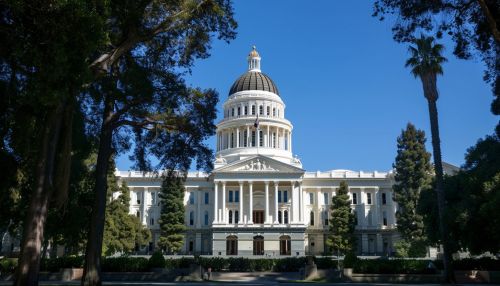California Consumer Privacy Act
Overview
The California Consumer Privacy Act (CCPA) is a state statute intended to enhance privacy rights and consumer protection for residents of California, United States. The bill was passed by the California State Legislature and signed into law by Jerry Brown, the Governor of California, on June 28, 2018, and went into effect on January 1, 2020.


Background
The CCPA was introduced as a response to the increased role of personal data in contemporary business practices and the corresponding privacy implications. The law introduces new legal rights for consumers and imposes significant transparency obligations on businesses that collect personal information.
Key Provisions
The CCPA contains several key provisions that define and regulate the collection, storage, and use of personal information by businesses.
Consumer Rights
The CCPA grants consumers several new rights, including the right to know what personal information is being collected about them, the right to delete personal information held by businesses, the right to opt-out of the sale of personal information, and the right to non-discrimination in terms of price or service when a consumer exercises a privacy right under CCPA.
Business Obligations
Under the CCPA, businesses are obligated to disclose data collection and sharing practices to consumers, provide a consumer’s requested data within 45 days, delete a consumer's data upon request, and provide a means for consumers to opt out of data sales.
Impact
The CCPA has had a significant impact on businesses, particularly those in the technology sector. It has also influenced other states and countries to consider similar legislation to protect consumer privacy.
Criticisms
While the CCPA has been praised for its consumer protections, it has also faced criticism. Some argue that the law is too broad in its definitions and requirements, while others believe it does not go far enough in protecting consumer privacy.
